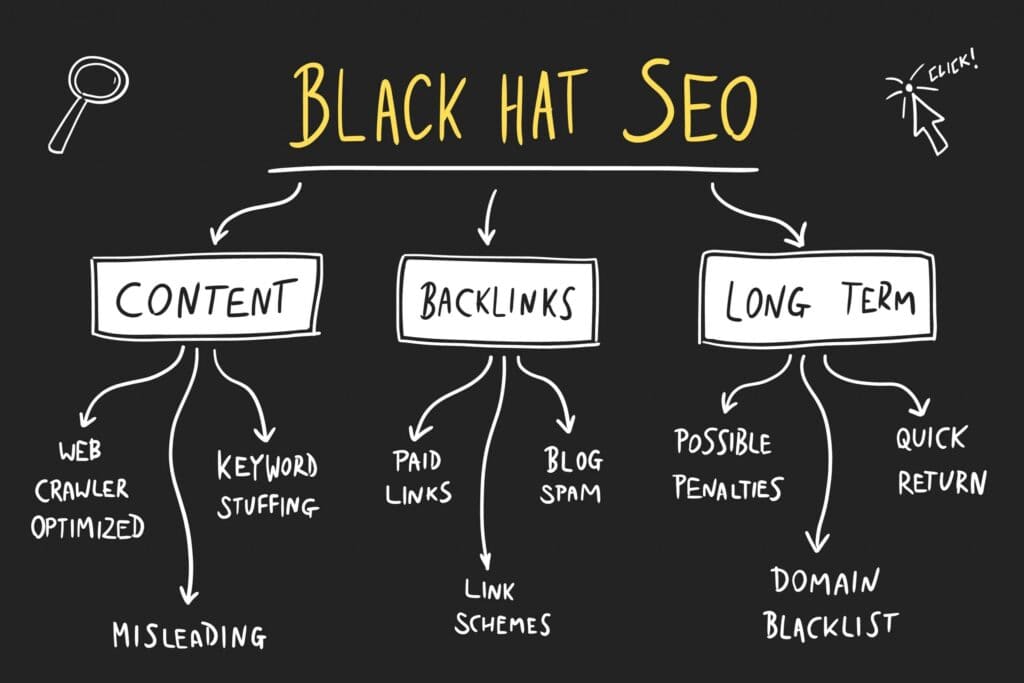In the dynamic realm of digital marketing, there are a lot of words out there that people may not be familiar with. One you should be aware of though, is black hat marketing. Sounds cool, like a pseudonym for a superhero, but it’s actually not that fun – it’s pretty unethical. Black hat marketing is set of techniques employed by some marketers to manipulate online systems for quick gains.
At its core, black hat marketing involves the use of unethical tactics to artificially boost a website’s visibility, traffic, or engagement. This includes practices such as keyword stuffing and cloaking.
Black Hat Marketing Tactics
Keyword stuffing is a method where marketers overload a piece of content with an excessive number of keywords, aiming to manipulate search engine algorithms. This can result in content that appears disjointed and unnatural, sacrificing quality for the sake of visibility.
For example, if you are thinking of buying a new phone and decide to search for smartphones, you may come across something like this:

“Looking for the best smartphone? Our smartphones are the best smartphones on the market. Our smartphones have cutting-edge technology, making them the ideal smartphones for everyone. Buy our smartphones now and experience the best smartphone technology!”
Here, the word “smartphone” is excessively repeated to manipulate search engines into thinking the content is highly relevant to users searching for smartphones. While it may seem like an easy way to improve search engine rankings, it makes the content seem unnatural and difficult to read.
Here’s another example!

Cloaking, on the other hand, is a deceptive technique wherein different content is presented to search engines and users. By doing so, a webpage can be ranked higher than it deserves, misleading both search algorithms and users.
Imagine you have a website selling fitness equipment, and you want to attract more visitors. To trick search engines, you load your page with popular fitness-related keywords like “best home gym equipment,” “affordable workout gear,” and “top fitness accessories.”
Search engines analyze your site’s content and think it’s a great match for users interested in fitness equipment. However, when actual users click on your site, they find something else. Instead of showcasing fitness products, your site redirects them to a page promoting unrelated items like sunglasses or cookware.
By doing this, you have put a “cloak” over your real content by showing search engines keywords that aligns with their criteria, to gain more clicks.
Black Hat Marketing Risks
While this may seem harmless to consumers, one significant risk of black hat marketing is the compromise of personal information. Black Hat tactics often involve websites that may not care about user security. Clicking on deceptive links or engaging with suspicious content could lead to your sensitive data such as financial information being leaked.

Additionally, people may find themselves involved in scams or fraudulent activities operated by companies using Black Hat Marketing techniques. From fake online stores to phishing schemes, it’s hard to know which pages are legit and which aren’t. To avoid these risks, make sure you’re not clicking on any suspicious looking links and regularly update your passwords.
In conclusion, black hat marketing is a tactic that does businesses more harm than good, yet some companies still prefer it. While search engines do their best to keep consumers safe, it’s important to stay informed and up to date. Happy browsing everybody!
Want to learn more about marketing? Read about user-generated content here!













